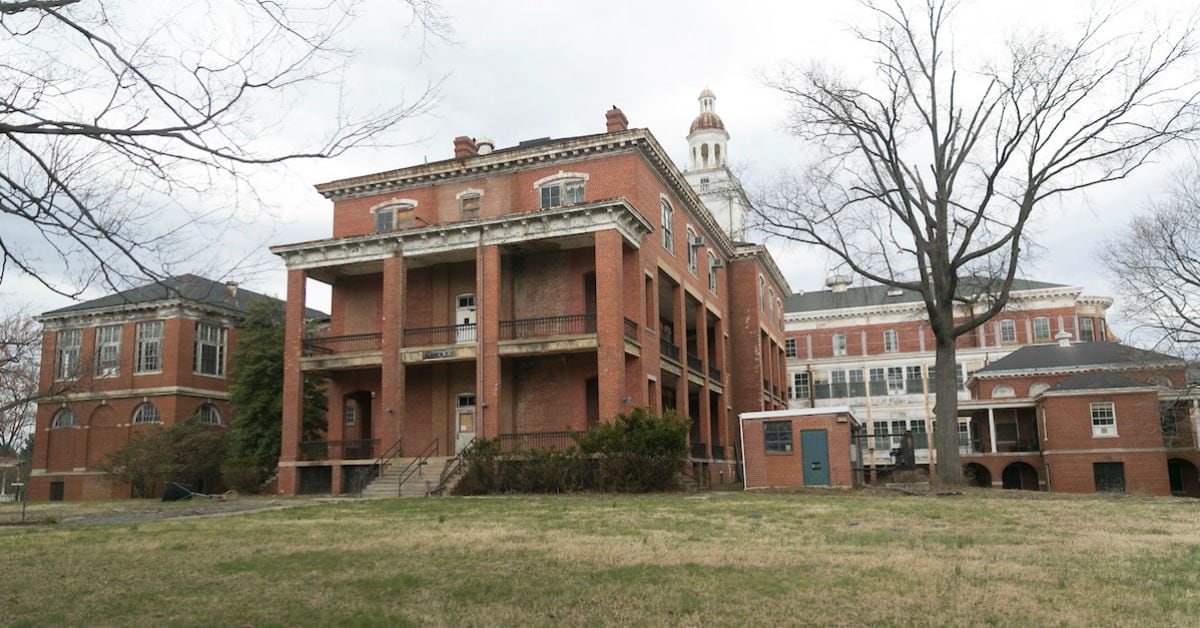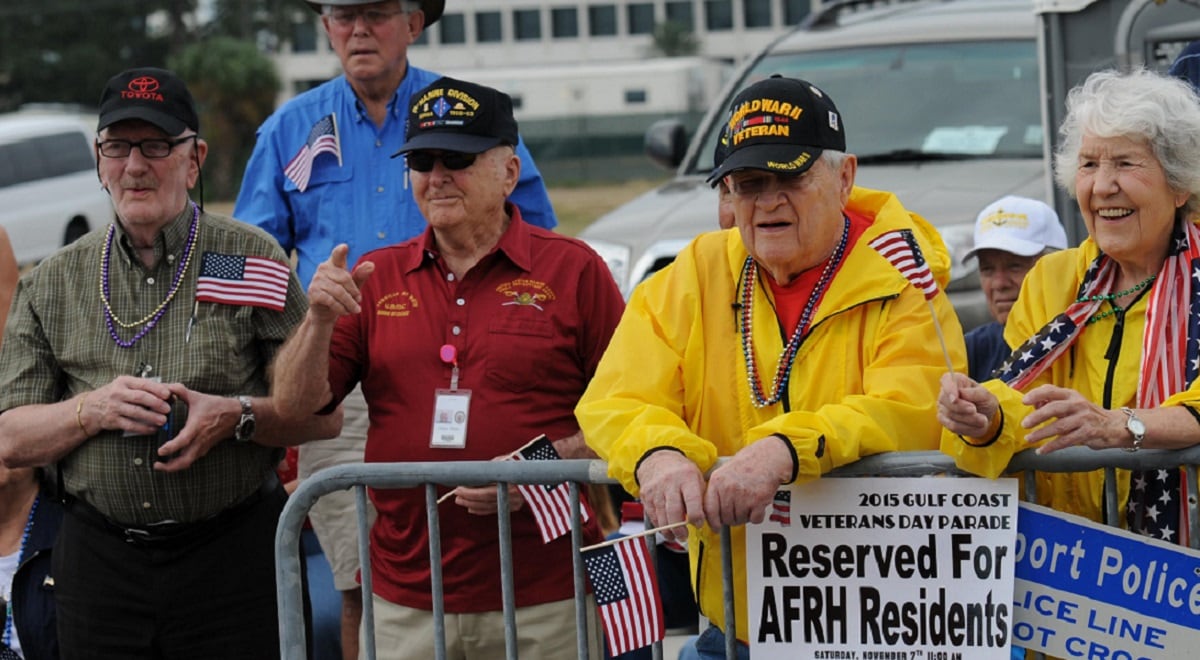In a major step to address continuing funding shortfalls, officials at the Armed Forces Retirement Home have selected a team of Washington, D.C.-based real estate firms to develop nearly a third of the Washington-based property, to start generating millions of dollars in extra income.
Residents of the AFRH campuses, based in Washington and in Gulfport, Mississippi, are retired or certain former enlisted members. In addition to resident fees, part of AFRH’s funding currently comes from the 50-cent-a-month deduction from active-duty enlisted service members’ paychecks, and fines imposed on enlisted members for disciplinary violations.
Officials describe the step as a “provisional” selection, as negotiations will begin on a variety of issues. The project involves a long-term ground lease involving 80 acres of the 272-acre property. While a timeline is not firm, once the lease is signed, the project will be phased in over more than a decade, said AFRH spokesman Chris Kelly.
The home will retain ownership of the land.
The team of two firms, Madison Marquette and Urban Atlantic, proposed about 4.3 million square feet of new development and adaptive reuse of historic buildings including the power plant and hospital complex.
Their plan is consistent with AFRH’s vision, officials said, and includes residential, retail, art spaces, sports and wellness venues, as well as adaptive reuse of several historic buildings. It will open up parts of the AFRH campus to the public, including almost 20 acres of green space and pedestrian and bicycle paths.
Officials declined to discuss how much AFRH expects to receive from the developer, citing negotiations underway. However, in testimony before Congress earlier this year, AFRH’s Chief Executive Officer Stephen T. Rippe, a retired Army major general, said the project will ultimately provide AFRH with millions of dollars in lease payments each year, and restored property worth hundreds of millions.
The two AFRH campuses have capacity for a combined 1,100 residents. It’s the nation’s oldest continually operating retirement home for enlisted military personnel. The Washington campus has 276 residents currently, with the capacity for 555.
The Washington campus has 35 buildings with more than 4 million square feet of space, on the southeast part of the property, which are part of the proposal. That campus is listed on the National Register of Historic Places as a historic district. Among those buildings is the historic hospital complex, built in the early 1900s.

The golf course is not part of the 80-acre development, and remains open to the public through associate membership fees, Kelly said.
The area where residents live will continue to be gated, Kelly said.
A five-member, multi-agency panel of experts convened by the U.S. General Services Administration reviewed the proposals submitted for the property, considering design, socioeconomic benefits, environmental mitigation, the financial offer, and the team’s ability to implement the proposal, among other factors. AFRH’s Chief Executive Officer Stephen T. Rippe and the Chief Operating Officer James Branham accepted that panel’s recommendation for Madison Marquette and Urban Atlantic.
“The selection of the Madison/Urban team marks a significant step towards raising funds necessary to sustain the Home’s trust fund and improve the physical infrastructure on our Washington, D.C., Campus,” Branham said, in the announcement. “The revenues that AFRH will realize through this project will help us build and renovate the facilities needed to care for America’s heroes today and in the future.”
AFRH officials noted the accomplishments of the two real estate firms, “as evidenced locally by the $1 billion+ projects at the Wharf, the Parks at Walter Reed, and Capitol Quarter.” They cited their experience in land development, public-private partnerships, complex ground lease transactions and historic preservation.
RELATED

AFRH and DoD officials have been examining every aspect of the AFRH operations, in the wake of a serious cash flow problem that resulted in nearly depleting the AFRH trust fund. It declined from $186 million in 2010 to $46 million in 2015. The trust fund currently stands at $55 million, less than one year’s operating expenses. AFRH has had to ask for about $20 million in taxpayer dollars each year since fiscal 2016.
AFRH is in the process of gradually increasing resident fees. Monthly resident fees are income-based. The median income of residents is $44,000 a year, and one-fourth make less than $34,000 a year. The average resident pays $21,000 in fees to live at the home, which includes lodging, food, transportation, medical care, recreation and other amenities. But it costs AFRH $37,000 a year for each independent living resident and $128,000 for each memory support resident.
As the negotiations process continues, AFRH officials said, they will continue to consult with its residents, the National Capital Planning Commission, the District of Columbia’s State Historic Preservation Office and Office of Planning, the Home’s institutional and residential neighbors, and local elected officials.
Karen has covered military families, quality of life and consumer issues for Military Times for more than 30 years, and is co-author of a chapter on media coverage of military families in the book "A Battle Plan for Supporting Military Families." She previously worked for newspapers in Guam, Norfolk, Jacksonville, Fla., and Athens, Ga.
